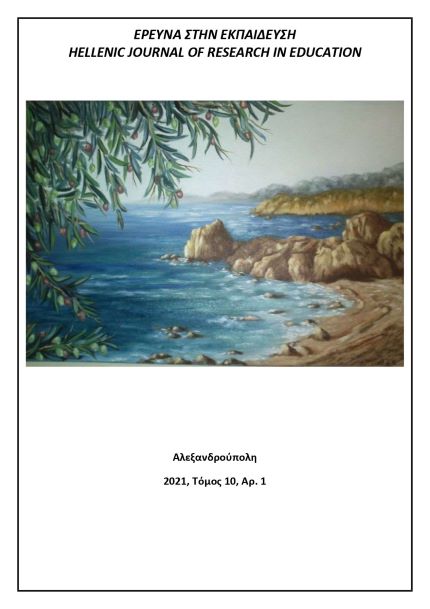Τhe knowledge of early childhood teachers regarding autism and their attitudes towards the inclusion of children with autism in classroom

Abstract
The purpose of this study was to investigate the knowledge of early childhood teachers regarding autism and their attitudes towards the inclusion of children with autism in classrooms. The research involved 91 early childhood teachers from the wider region of Western Macedonia. A demographic questionnaire and the Autism Inclusion Questionnaire (AIQ; Segall & Campbell, 2007) were used to investigate the above questions. According to the results of this research, the most the participating early childhood teachers had sufficient knowledge, however, they maintained a neutral attitude towards the inclusion of children with autism in the general classrooms. In addition, their previous experience with children on the autism spectrum and their additional training in special education did not lead to a more positive attitude towards the inclusion of these children. Exploring early childhood teachers’ views can make a significant contribution to the design of useful inclusive educational practices.
Article Details
- How to Cite
-
Γρηγορόπουλος Η. Ν., & Προβατά Α. (2021). Τhe knowledge of early childhood teachers regarding autism and their attitudes towards the inclusion of children with autism in classroom. Hellenic Journal of Research in Education, 10(1), 1–19. https://doi.org/10.12681/hjre.24657
- Issue
- Vol. 10 No. 1 (2021)
- Section
- Articles

This work is licensed under a Creative Commons Attribution-NonCommercial-ShareAlike 4.0 International License.
Authors who publish with this journal agree to the following terms:
- Authors retain copyright and grant the journal right of first publication with the work simultaneously licensed under a CC-BY-NC-SA that allows others to share the work with an acknowledgement of the work's authorship and initial publication in this journal.
- Authors are able to enter into separate, additional contractual arrangements for the non-exclusive distribution of the journal's published version of the work (e.g. post it to an institutional repository or publish it in a book), with an acknowledgement of its initial publication in this journal.
- Authors are permitted and encouraged to post their work online (preferably in institutional repositories or on their website) prior to and during the submission process, as it can lead to productive exchanges, as well as earlier and greater citation of published work (See The Effect of Open Access).


